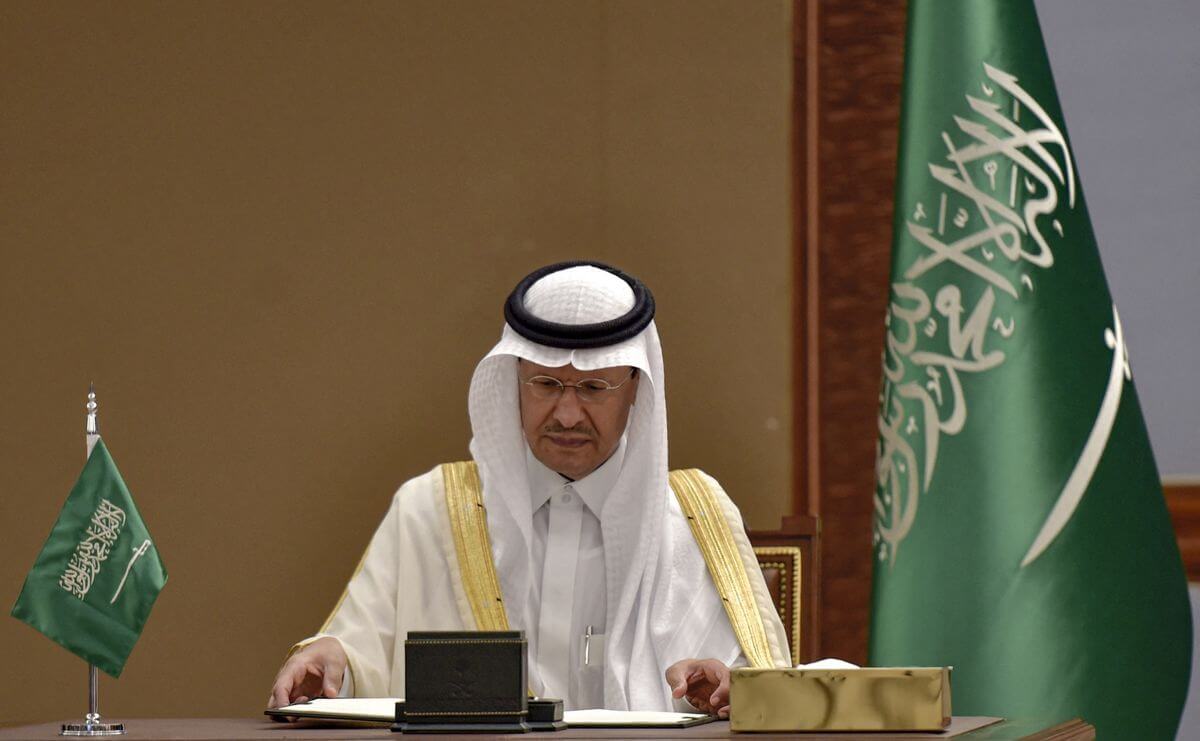Saudi Energy Minister Prince Abdulaziz bin Salman on Monday rejected reports that the Organization of Petroleum Exporting Countries and allies (OPEC+) plans to announce an oil production increase at its upcoming meeting in December.
Noting that “OPEC+ does not discuss any decisions ahead of its meetings,” Prince Abdulaziz said, “The current cut of two million barrels per day by OPEC+ continues until the end of 2023,” referring to oil output cut by the energy cartel last month.
“If there is a need to take further measures by reducing production to balance supply and demand, we always remain ready to intervene,” he noted.
The minister was referring to a report by the Wall Street Journal (WSJ) that OPEC members and allies have been discussing a production increase of 500,000 barrels per day (bpd). OPEC+ officials told the newspaper that such a move could help calm tensions between OPEC leader Saudi Arabia and the United States (US).
Officials also believe that raising production could help with Western efforts to curtail Russia’s oil industry. Notably, such an announcement would be made on 4 December, a day before the G7 plans to announce a price cap on Russian crude oil imports.
According to the WSJ, an output increase of 500,000 bpd would help reverse the effect of the two million bpd production cut, albeit only minimally, and also serve as a first step in repairing US-Saudi relations.
Having been widely lambasted for cutting the production of OPEC Plus and hence subsidizing Putin's war-crimes-laden invasion of Ukraine, the Saudi crown prince's government is now saying that it might partially increase production. Or not. https://t.co/ruMXMG10L7
— Kenneth Roth (@KenRoth) November 22, 2022
In October, OPEC+ announced a two million bpd production cut.
Washington condemned the decision, calling it “short-sighted.” It accused Saudi Arabia of destabilising the global energy market, warning that such a move would raise energy prices. It further argued that Saudi Arabia is willingly helping Russia overcome Western sanctions on Moscow’s energy industry, claiming OPEC’s move would allow Russia to fund its war against Ukraine.
Several Biden administration officials have demanded that Washington end all cooperation with Riyadh in critical areas in response, including halting all weapons supplies and withdrawing US troops. Some officials have even called on Congress to pass the ‘No Oil Producing and Exporting Cartels’ (NOPEC) bill, which would allow the US to bring anti-trust lawsuits against countries engaging in oil price fixing and anti-competitive behaviour. Such a move could severely affect OPEC+’s monopoly of global oil supplies.
Saudi Arabia, however, insisted that the move was meant to stabilise the global energy market in light of the disruptions caused by Russia’s invasion of Ukraine. Riyadh and its Gulf allies rejected US accusations and said the move to cut production was not political. Furthermore, Saudi Crown Prince Mohammed bin Salman (MBS) announced a $400 million aid package for Ukraine, saying that this proves the Kingdom’s commitment to Ukraine’s cause. Ukrainian President Volodymyr Zelensky praised the move.
Reports of OPEC+ planning to increase oil production follows the Biden administration’s decision to grant immunity to MBS in a lawsuit over the 2018 murder of Saudi dissident journalist Jamal Khashoggi because he is a sitting head of state. The move was a reversal of President Joe Biden’s stance that MBS was responsible for ordering the assassination of Khashoggi, who was kidnapped and murdered by hit squads sent by MBS at the Saudi consulate in Istanbul.

